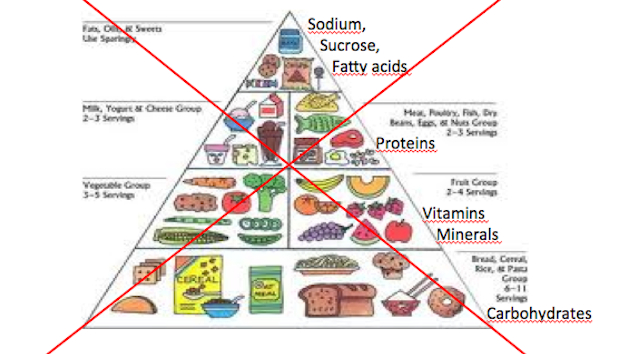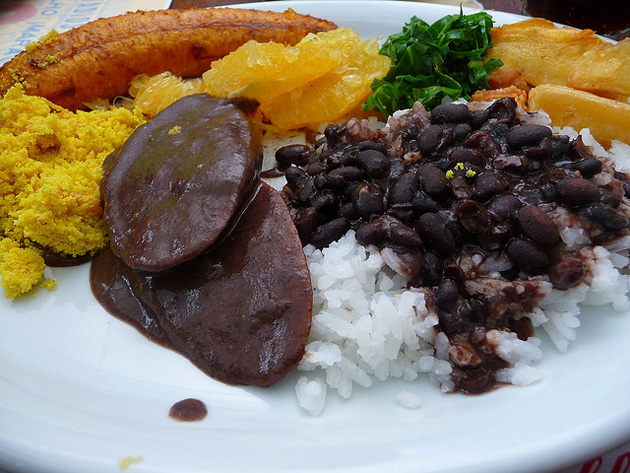
Say no to pyramid schemes. From a <a href="http://www.foodpolitics.com/wp-content/uploads/Washington_Dietary_Guidelines_symposium_14-nov-2014-_Monteiro.pptx" target="_blank">recent presentation</a> by Carlos Monteiro, a Brazilian nutritionist who helped formulate the guidelines.
As anyone who has read Marion Nestle’s Food Politics or Michael Pollan’s In Defense of Food knows, the US Department of Agriculture’s attempts to issue dietary advice have always been haunted by industry influence and a reductionist vision of nutrition science. The department finally ditched its silly pyramids a few years ago, but its guidelines remain vague and arbitrary (for example, how does dairy merit inclusion as one of five food groups?).
In Brazil, a hotbed of sound progressive nutritional thinking, the Ministry of Health has proven that governmental dietary advice need not be delivered in timid, industry-palatable bureaucratese. Check out its plain-spoken, unimpeachable, and down-right industry-hostile new guidelines (hat tip Marion Nestle):
1. Make natural or minimally processed foods the basis of your diet
2. Use oils, fats, salt, and sugar in small amounts when seasoning and cooking natural or minimally processed foods and to create culinary preparations
3. Limit consumption of processed foods
4. Avoid consumption of ultra-processed products
5. Eat regularly and carefully in appropriate environments and, whenever possible, in company
6. Shop in places that offer a variety of natural or minimally processed foods
7. Develop, exercise and share culinary skills
8. Plan your time to make food and eating important in your life
9. Out of home, prefer places that serve freshly made meals
10. Be wary of food advertising and marketing
Meanwhile, over on Civil Eats, the dissident nutritionist Andy Bellatti places Brazil’s new approach on a fascinating list of five food-policy ideas the US could learn from Latin American nations.














